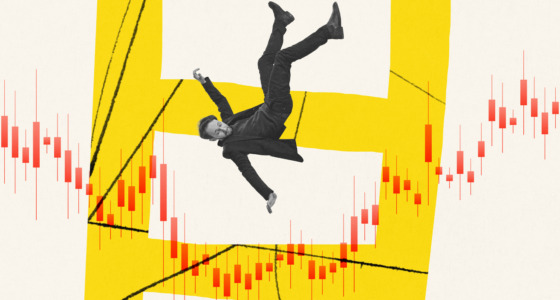

The most successful fictional characters of all time are Scrooge McDuck, Smaug, and Oliver “Daddy” Warbucks. While the first two have powers and abilities that are impossible to have in real life, Warbucks has an advantage that is closer to real life. He is a self-made, self-reliant millionaire who retained his identity with the less fortunate people.
The writers for the comic strip Little Orphan Annie gave Warbucks personal traits that can explain why he became so successful. But back to real life, there are some traits and core beliefs that most successful traders share. Do you have them? Let’s find out.
1. You are good with numbers

Some people are born with a naturally better sense of numbers than others. Or perhaps education improved your mathematical abilities, so you became a math person. If you fit either description, you’ll make a great trader!
While trading doesn’t require you to do complex math, you need to understand data and numbers. For example, it’s necessary to grasp the concepts of addition, division, subtraction, and averages.
2. You are resilient
Everyone experiences setbacks in their trading activity, and you will probably be no exception. What matters for a trader is whether they can accept your losses and go on. The fact that there may be weeks when you don’t make any money shouldn’t scare you. Your capacity to recover quickly from difficulties should be bigger than the fear of losses.
3. Financial success is not everything to you
You agree that money allows you to focus on the important things in life and not stress about basic things. But you also understand that it shouldn’t be the driving force behind every decision.
Ask yourself, “why do I trade?” If your answers go beyond just making money, (e.g., mastery of the markets, love of the process, etc.) you’re on the right track.

4. You can control your impulses
In trading, there are times when you have to seek out thrills and excitement. If you listen to the voice of reason inside your head and can easily stop yourself from engaging in certain behaviors, it’s a promising sign. That “voice” comes from the area of the brain that handles planning, making choices, and suppressing urges.
5. You are a quick learner

As a successful trader in the making, you’ll be learning a lot of new information at a rapid pace. But fast learning is not just about comprehension—it also means that you can apply what you learned to the markets.
So, you should have the analytical skills to process new information and find meaningful conclusions from it.
6. You thrive in a fast-paced environment
While others prefer a more laid-back setting, you’re at your highest capacity in busy markets. You’re ready for quick action. Sometimes, it means juggling multiple trading assets or markets at once, sometimes, it means taking on something new with only a moment’s notice. With all the chaos taking place in financial markets, you can still find ways to stay organized and calm.
7. You don’t follow others
“Even the intelligent investor is likely to need considerable willpower to keep from following the crowd.”
Benjamin Graham
You don’t follow in others’ footsteps because those are others’ footsteps; instead, you make decisions based on your own analysis. Another good sign: you understand that the crowd is not always right. In fact, it’s wrong most of the time.
8. Other people’s wins don’t affect you
How do you feel when you hear about someone being more successful than you? If you feel resentment or jealousy, you probably don’t have the mental strength to trade. If you celebrate other people’s success or see it as a challenge for yourself, that’s a much better attitude.
Don’t waste your time worrying about other people reaching their dreams. You can spend it achieving your own trading success.
9. You accept that unrealized gains are not yours
Unrealized gains/losses are “paper” gains/losses to you. They simply represent the potential value of your assets, which goes up and down over time. Such gains or losses don’t affect you or feel real until you actually sell the assets and thus “realize” the gain or loss.
10. You don’t think in absolutes

Thinking in absolutes means taking an answer and excluding all other possibilities. It means living an all-or-nothing life and speaking in “good or bad, yes or no.” But that doesn’t describe you at all. You’re the opposite—you’re open to ideas, understand that there are alternatives and intricacies in every situation, and can change your mind if presented with new information.









